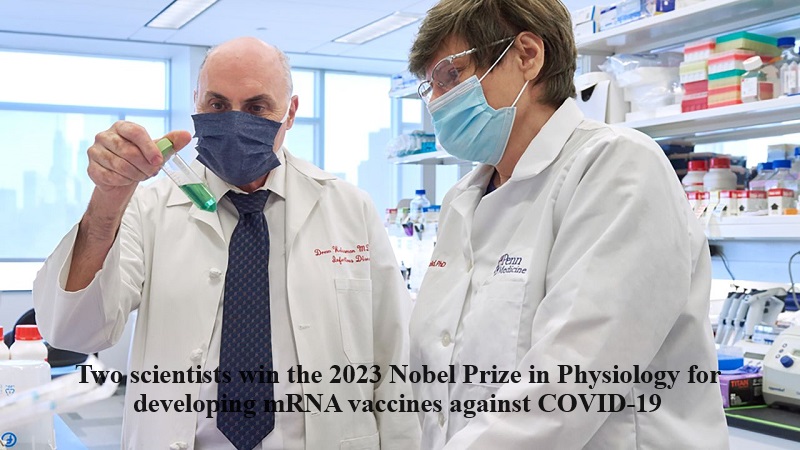
Two scientists, Katalin Karikó and Drew Weissman, were awarded the Nobel Prize in Physiology or Medicine for 2023 on Monday, October 2. Their groundbreaking work paved the way for the development of highly effective mRNA vaccines against COVID-19. The announcement was made by Thomas Perlmann, the secretary of the Nobel Assembly in Stockholm, Sweden.
The Nobel Prize in Physiology or Medicine is among the most prestigious awards in the scientific community, chosen by the Nobel Assembly of the Karolinska Institute medical university in Sweden. The laureates will also receive a prize of 11 million Swedish crowns, which is approximately $1 million.
The Nobel Assembly recognized the immense contribution of these two scientists to the rapid development of vaccines during one of the most significant health threats in recent history, stating, “The laureates contributed to the unprecedented rate of vaccine development during one of the greatest threats to human health in modern times.”
Katalin Karikó is a professor at Sagan’s University in Hungary and an adjunct professor at the University of Pennsylvania in the United States. Drew Weissman holds the position of Roberts Family Professor in Vaccine Research and serves as the Director of the Penn Institute for RNA Innovations. Karikó previously held the role of senior vice president and head of RNA protein replacement at BioNTech until last year, after which she became an adviser to the company. Weissman is a professor in vaccine research at the Perelman School.
When contacted shortly before the official announcement, both scientists expressed being “overwhelmed” by the news, according to the secretary of the Nobel Assembly.
The groundbreaking discovery for which they received the Nobel Prize involves nucleoside base modifications that prevent the immune system from triggering an inflammatory response against lab-made mRNA. This breakthrough addressed a major obstacle in using mRNA technology for therapeutic purposes.
In 2005, Karikó and Weissman demonstrated how adjustments to nucleosides, the molecular components that form mRNA’s genetic code, could enable the mRNA to evade detection by the immune system. Their work fundamentally changed the understanding of how mRNA interacts with the immune system and had a profound impact on society during the COVID-19 pandemic.
The mRNA vaccines developed by German biotech firm BioNTech and drugmaker Pfizer have been administered to approximately 1.5 billion people worldwide as of June 2023. According to the European Medicines Agency (EMA), these vaccines played a critical role in saving nearly 20 million lives globally during the first year of the pandemic.
The Nobel Prize season continues with the announcement of the physics prize on Tuesday, the chemistry prize on Wednesday, and the literature prize on Thursday. The prizes will be presented to the laureates by the Swedish king during a ceremony in Stockholm on December 10, the anniversary of Alfred Nobel’s death.

Post Your Comments